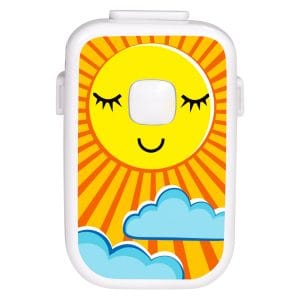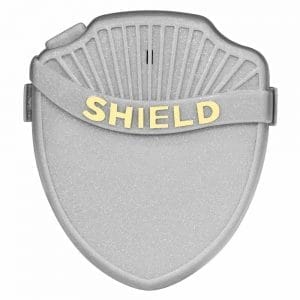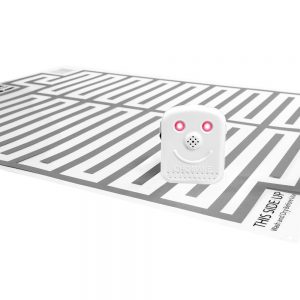Nighttime Bedwetting
In this article:
Nighttime Bedwetting in Children
Changing wet sheets and soiled pajamas is frustrating for both parents and children with bedwetting problem. Although reported to be found in 5 to 7 million U.S. kids, bedwetting, unlike allergies or other common childhood problems, is not discussed outside home. The secrecy and social awkwardness surrounding bedwetting makes the problem tougher for the young bedwetters and their parents.
When Nighttime Bedwetting Is a Concern
Many children continue to wet beds even after potty training–the last stage of bladder control. Typically, bed wetting is considered as an issue after the age of 5 or 6 years, and most pediatricians may not diagnose the problem until 6 years. However, if you or your bedwetting child feels that bedwetting is becoming an issue, consult your child’s pediatrician.
What Causes Nighttime Bedwetting?
- Nighttime bedwetting is hereditary, that is a parent or a first relative had bed-wetting when they were younger
- Some children have small bladders that cannot hold large amount of urine
- Some kids experience a delayed bladder maturation, which means their brain and bladder have not learned to communicate with each other during sleep, just yet.
- Children, who are deep sleepers, cannot recognize a full bladder.
- Some kids do not produce enough ADH (antidiuretic hormone), the hormone responsible for slowing down the nighttime urine production.
- Chronic Constipation can trigger bedwetting. A full rectum squishes the bladder and irritates it, reducing the bladders capacity to hold urine. The irritated bladder is then more likely to contract and empty without warning.
- Bedwetting may stem from medical issues such as urinary tract infections, sleep apnea, diabetes, spinal cord problems etc. However, Web MD reports that “bedwetting that’s caused by medical problems is genuinely rare — 3% of cases or less.”
- Emotional stress arising out of moving, death of loved one, separation or divorce of parents, bullying, new school or social environment is also known to trigger bed wetting.
What You Can Do
- Offer reassurance. Talk to your bedwetting child and tell him or her that there are many more kids out there facing bedwetting and that he or she is not alone
- Tell them that if bedwetting runs in the family.
- Talk to your child’s pediatrician so that he/she can evaluate the cause, offer a treatment suggestions and track your child’s progress.
- To avoid constipation increase fluids and fiber intake. However, limit your child’s fluid intakes few hours before the child goes to bed.
- Encourage bedwetting children to use the bathroom before going to bed.
- Get a bedwetting alarm. These alarms alert your child to use restroom, and gradually condition them to wake up, use the restroom and go dry. Check out Chummie Premium Bedwetting Alarm that comes equipped with one drop detection technology. Chose from wearable bedwetting alarms, bedside bedwetting alarms and wireless bedwetting alarms. Visit our best bedwetting alarm page or compare bedwetting alarms for more information.
- Try a few bladder stretching exercises.
- Use bedwetting diapers.
- Use a waterproof mattress pad. Four popular varieties include quilted waterproof mattress pads, reversible waterproof mattress pads, bamboo waterproof mattress pads and disposable waterproof mattress pads. Mattress pads come in various sizes. Be sure to compare waterproof mattress pads before purchasing one.
- Stock up pull-ups and a pair of clothes for a quick change.
- Offer incentive such as a toy for dry nights
Nighttime Bedwetting in Teens
Tahe the case of Mario, a 15-year-old, Rockford high student, is smart and active. Yet, he finds it hard to make friends or perform well in school. He is constantly at guard to prevent his friends from discovering his secret–Mario still gets his bed wet. It is completely involuntary, but it happens, because he sleeps so soundly that nothing can wake him up.
Although less prevalent in teens, statistics show that “two to five percent of children, or one child per class, continue to wet their bed.” However, just because Mario and other teens like him have not achieved nighttime dryness, it doesn’t mean there is something wrong with them.
Here are some common reasons that can cause nighttime bed wetting in teens:
- Nighttime bed wetting runs in the family, that is, it is hereditary
- Some teens have small bladders (according to children’s health network “normally teen size is 12 to 16 ounces of urine”) that cannot hold large amount of urine
- Some teens are deep sleepers and have no bladder sensation in night
- Lack of ADH (antidiuretic hormone, or ADH) the hormone that concentrates the urine so that kidney doesn’t make too much of it
- Physical causes such as constipation, UTIs
- Emotional stress arising out moving, death of loved one, separation or divorce of parents, bullying, new school or social environment is also known to trigger bed wetting
Some helpful ideas for nighttime bed wetting teens
- Empty your bladder before going to bed. If necessary put a sign on the wall or set a reminder on your phone
- Try not to take too much fluid, particularly caffeinated drinks, two hours before you go to bed
- During the day, when you are home and feel the desire to pee, before going to urinate, go to your bedroom, lie down your bed and pretend that it is bed time. Reiterate to yourself that this is how the bladder feels at night when it signals to you to use the restroom.
- Get an enuresis alarm–one that combines vibration and sound. Alarms are reported to be most effective treatment for bed wetting. Most modern day alarms are extremely moisture sensitive, (like the Chummie Premium bedwetting alarm, that come with a sensor that can detect urine from the very first drop), compact and lightweight.
Enuresis alarms help you to establish a connection between your brain and the bladder, and gradually help you go dry
- Don’t miss out on camps, slumber parties or sleepovers. Take medication that can help you increase bladder capacity temporarily or reduce urine production. Consult your doctor before taking any medicines, and do not make medicines a regular habit as they have side effects, and do not necessarily stop bed wetting.
- Talk to your doctor to rule out any medical issues, and to discuss a treatment plan
- Seek your parents’ help if you cannot wake up on your own
Nighttime Bedwetting Myths and Facts
Nighttime bedwetting or nocturnal enuresis is a common childhood problem for almost 7 million children in the U.S and over 100 Million children around the world. Yet, there are many misconceptions about bedwetting. We have put together a list of some common myths and facts concerning bed wetting.
Nighttime Bedwetting Facts
Nighttime Bedwetting is common among children.
Your child isn’t the only one who is wetting the bed at night. According to the American of Child & Adolescent Psychiatry “about 15 percent of children wet the bed after age of three.” Studies also show that children over the age of 5 occasionally wet their beds. However, if a child wets more than 2-3 times per month, you should consult their pediatrician.
Children take time to develop bladder control.
Bladder control is complex and varies with each child. Web MD’s expert Pediatrician Dr. Hansa Bhargava, says, “15% of 5-year-olds actually have bedwetting! Most kids are aware of their bladder in the daytime by the age of 4, but a lot of kids aren’t aware of their bladder in the nighttime until they are about 7 or so.”
Nighttime Bedwetting is more common among boys than girls.
Boys are, unfortunately, affected more than girls, when it comes to bedwetting — almost twice as much.
Nighttime Bedwetting is common in deep sleepers.
Bedwetting is not always an emotional or even a medical problem. It is many times a problem of sleeping so deeply that you have no bladder sensation.
Nighttime Bedwetting is not my child’s fault.
Bedwetting is NOT your child’s fault so do not punish your child for something that is beyond his/her control. Do not show your frustrations to your child as it will affect his/her social behavior and s academic performance at school.
Nighttime Bedwetting is caused by constipation.
Constipation has been reported to be one of the major factors of bedwetting. Dr, Hansa Bhargava, at Web MD says, “A full bowel can actually impact the ability of the bladder to retain urine or have bladder control at night. So more water, more fruits and vegetables, will help the constipation and then, of course, help the bedwetting as well.”.
Nighttime Bedwetting is hereditary.
Enuresis (bedwetting) runs in the family. The likelihood of your child wetting the bed is increased significantly if you wet the bed when you were younger. Studies show that 3 of 4 children who suffer from bedwetting have a family history of enuresis.
Nighttime Bedwetting Myths
The easiest solution to nighttime bedwetting is medication.
No medication stops enuresis. They only treat the symptoms. Bedwetting alarms are typically preferred more than medication because bedwetting alarms do not have any harmful side effects. Medication for bedwetting provides a temporary solution (such as when the child wants to go to a sleepover or to a camp), but once medication is stopped, the child relapses back to his/her old habits of wetting the bed.
Drinking less liquids before bed will stop nighttime bedwetting.
While drinking less liquids before bed might result in less volume of urine being dispersed, it will not stop bedwetting altogether. The cause of bedwetting is not the liquids being consumed, but rather because your child does not recognize the need to urinate just yet.
My child is too lazy to stop nighttime bedwetting
Your child is not lazy if he is bedwetting. No one likes to wake up in a wet bed every morning. It is possible that your child has a small bladder and can not hold urine all night long. It takes time for the brain to develop the connection with the bladder to indicate that he/she needs to wake up and not wet the bed.
Punishment will help my child stop nighttime bedwetting
Your child does not wet the bed intentionally., In fact, he/she has no control over bedwetting. Punishing your child may actually lead to damaged self esteem, and make him disappointed in you.
Stress causes nighttime bedwetting
nighttime bedwetting is not caused by stress. If your child suddenly starts bedwetting one night, it is not because he/she is stressed at school or sports, but because they have a small bladder or genetics or some other thing that is causing them to wet the bed.
My child will outgrow nighttime bedwetting
This may be true if your child is under 4 years old. Older children however need help. Patience, persistence, positive reinforcement and a proven bedwetting treatment system will help your child overcome bedwetting fast. Bedwetting alarms are clinically proven to stop bedwetting in children.
Impact of Nighttime Bedwetting
Wetting the bed at night can be very disturbing for children. Studies have found that bed-wetting children have lower self-esteem, a diminutive self-image, and a sense of being ‘different’ from others. The biggest fear, probably, for young bedwetters is the fear of being discovered, by their peers. They live with the constant burden of being bullied and teased at home and school, and often face trouble making friends, or gelling in a social environment, and performing in school.
Children suffering from nighttime bed-wetting might find it hard to discuss their situation at home or to even a close friend. The constant social pressure leads to a decaying morale and low self-esteem, which ultimately impacts negatively on the general well-being. The problem becomes double fold if the parents react reproachfully to the child’s wetting. In absence of parental support children can often become withdrawn and anxious, and they might refuse to interact and be social in most situations.
As a parent it’s essential for you to protect your child’s feelings and instill confidence. Make sure your child understands that bed-wetting is a common childhood problem, and that he or she is not the only wetting the bed. Share the statistics–studies show that as many as 5-7 million U.S. children suffer from bed wetting.
Parental blame and criticism can increase the anxiety in child making the child more withdrawn and discouraged. The child might feel that something is wrong with him or her. To see positive results, educate yourself and your child about bed-wetting, and work with him or her to develop a treatment plan that can help your child over come bed-wetting.
Treating Nighttime Bedwetting
If you have a bedwetting child, chances you are already on your toes to find a bedwetting solution. Well, as you and your bedwetter child tread the path to dryness, we are here to offer you a quick snapshot of some of the common, but effective tips to resolve bedwetting.
- Keep a tab on what your child’s consumes before going to bed.
Tell your bedwetter child to avoid drinking anything that contains caffeine, and just because he or she doesn’t drink coffee, it doesn’t mean your child is not consuming caffeine. Tea, sodas, energy drinks and even the much loved chocolates might contain some amount of caffeine. - Encourage your child to urinate frequently during the day
A bedwetter child should be urinating as frequently as 10 to 12 times a days to regularly empty the bladder. - Invest in bedwetting alarms
A bedwetting alarm is the most effective to bedwetting treatment and solution. According to the National Kidney Foundation, “50% to 70% of cases of enuresis respond to treatment with these moisture alarms.” The moisture receptive sensor of the alarm prompts the bedwetting alarm as soon as your child pees. It alerts your child to wake and finish urinating in the restroom.
If your child is a deep sleeper you can wake up him or her for first few nights. Gradually, your bedwetter child will learn to wake up independently when the alarm sounds, and after a few weeks the child will learn to wake without the alarm.
- Follow a strict bowel routine
Many studies show that constipation is key driver of bedwetting. Ensure your child is passing soft-pudding-like stool every day. If you feel your child is constipated increase the fluids, fiber, and also ask your child’s pediatrician if you can use some laxatives. - Get medication
In some cases doctors might prescribe medicines. Medication doesn’t treat bedwetting permanently; it only temporarily stops it. In most cases doctors prescribe medication to build up antidiuretic hormone or ADH that reduces the amount of urine produced in night or for any other medical issues that might be causing bedwetting. You can also use medication for occasional purposes such as sleepovers or slumber parties. - Addressing any underlying psychological issue
Sometimes a bedwetting child might wet the bed after being dry for months. If that’s the case you might want evaluate any social or environmental changes such as a new school or any new happenings in the family such as arrival of a new baby or separation or divorce of parents. Offering reassurance and spending more time with your child might help in addressing the issue and resolving bedwetting.
What Causes Nighttime Bedwetting
It is not completely understood what causes nighttime bedwetting or why children wet the bed at night. Simply put bedwetting is the unintentional passage of urine during sleep. It is normal for infant and toddlers to wet their beds, however, children somewhat achieve bladder control by 4 years of age. They usually achieve daytime control first and then eventually gain nighttime bladder However, many children continue to wet beds beyond 5 or 6 years of age. There are many reasons that contribute to nighttime bedwetting.
Broadly nocturnal bedwetting can be divided into primary nocturnal enuresis and secondary nocturnal enuresis. When a child wets the bed without any break since early childhood it is called primary nocturnal enuresis. On the other hand secondary nocturnal enuresis begins again after the child has been dry at night for at least six months.
If a child suffering from primary nocturnal enuresis fails to feel any bladder sensation during sleep and doesn’t wake up to urinate into the toilet, that is what causes bedwetting.
What causes nighttime bedwetting (Primary nocturnal enuresis) can be the result of a combination of factors. The cause is likely due to one or a combination of the following:
- Your child has a small bladder that cannot hold urine throughout night.
- Your child is experiencing a delayed bladder control.
- Your child is a deep sleeper and doesn’t realize when he or she begins urinating during sleep.
- Your child has irregular day time toilet habits. Your child should use the restroom at least five to seven times a day, but many children either ignore their need to urinate or simply hold on urinating as long as they can. If you notice your child crossing legs, squirming, or squatting, it’s probably time to remind them to urinate.
Secondary nocturnal enuresis might indicate a medical or emotional problem. A child with secondary nocturnal enuresis could have other symptoms such as the daytime wetting. Psychological stress such as arrival of a new sibling, moving, divorce of parents or peer pressure could all contribute to secondary bedwetting.
Now that you know what causes bedwetting, it is important to know that there are bedwetting treatment options available to help parents and children. These include bedwetting alarms, medications and more.








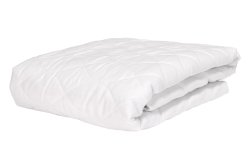 Our #1 Top SellerIdeal for Daily Use
Our #1 Top SellerIdeal for Daily Use Premium Quality BeddingSoft and Comfortable
Premium Quality BeddingSoft and Comfortable Premium Quality BeddingLarge Urine Absorption
Premium Quality BeddingLarge Urine Absorption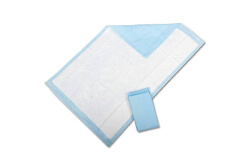 AFFORDABLE PRICECHANGE DAILY AS NEEDED
AFFORDABLE PRICECHANGE DAILY AS NEEDED
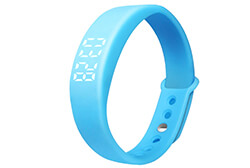 Sleek, Stylish and Affordable Watch
Sleek, Stylish and Affordable Watch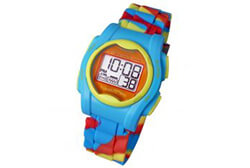 Multi-Function Watch with Numerous Features
Multi-Function Watch with Numerous Features Recommended watch for teens and adults
Recommended watch for teens and adults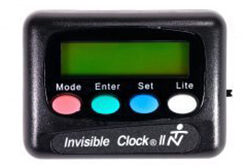 Perfect for medication and other reminders
Perfect for medication and other reminders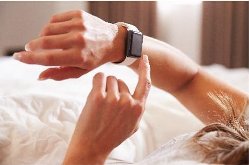





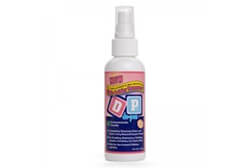




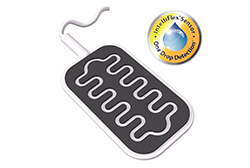
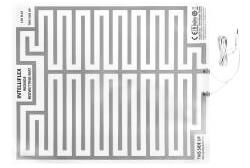

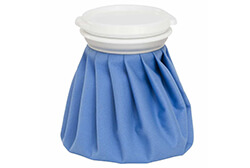

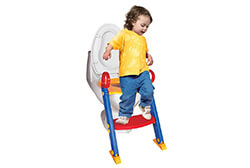
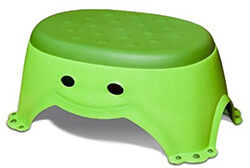
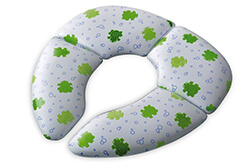


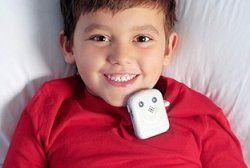




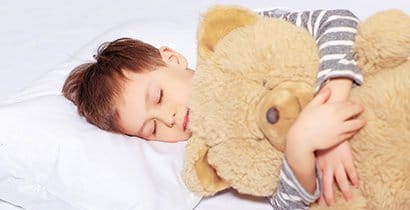

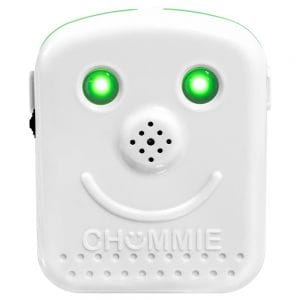
 Children
Children Play Alert Tones
Play Alert Tones Why buy from us
Why buy from us LARGE SELECTION
LARGE SELECTION EFFECTIVE ALARMS
EFFECTIVE ALARMS FAST SHIPPING
FAST SHIPPING SPECIALIST SUPPORT
SPECIALIST SUPPORT